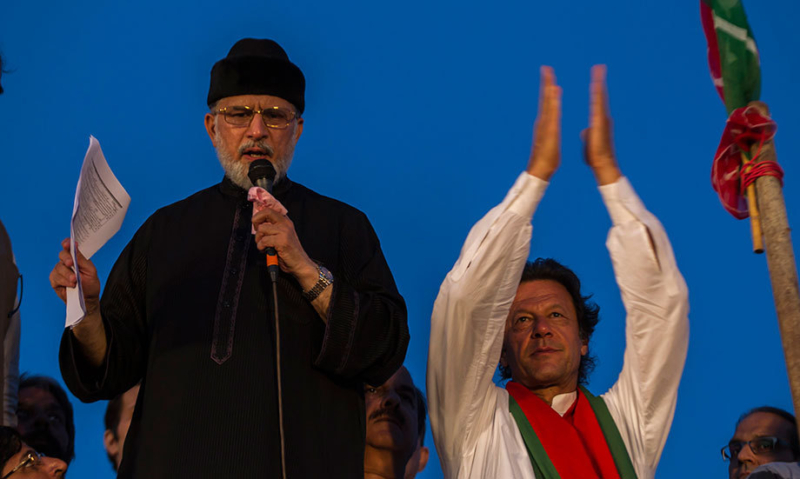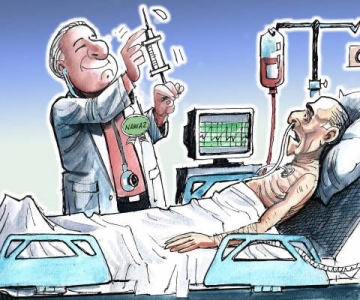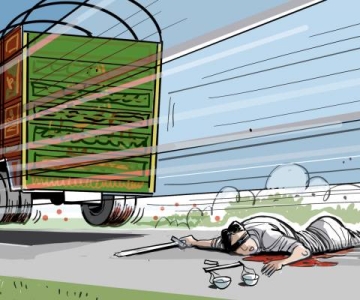Since early August, Pakistan has been battling itself, once again. Two opposition groups have paralysed the federal government and the capital for weeks through street protests that eventually turned violent. Imran Khan without an independent verification believes that last year’s election was rigged and that he was unfairly deprived of power. Imran’s unlikely ally, Dr Tahirul Qadri, returned from his home in Canada to bring about a revolution. Qadri’s definition of a revolution resonates with Pakistan’s middle class tired of corruption but promises no structural change except decimating the parliamentary institutions and rubbishing the country’s constitution.
Pakistan’s beleaguered prime minister, Nawaz Sharif, dealt with calls for his resignation with some fortitude. On occasions, he lost nerve by ordering crackdowns that left hundreds injured and at least three dead. Earlier, his brother and yes, family rule also irks the middle class who rules the country’s largest province, mishandled a mob of Mr Qadri’s supporters and a police action in June left at least 14 dead. All this while, the elected government at the helm remained deeply suspicious of the country’s powerful military that still holds the ultimate veto power on national and foreign policies. PM Nawaz has a terrible history of getting into a confrontation with the army and in 1993 and 1999 he had to step down without completing the constitutionally mandated term of five years. In 1999, he suffered additional humiliation by being ousted through a coup led by General Musharraf, faced imprisonment and remained in exile for seven years.
This bitter memory, it is said, tempted him to try General Musharraf for treason who launched a second coup in November 2007. Gen Musharraf’s indictment meant that the political elites had broken the taboo of holding the generals accountable. While this was a welcome development for Pakistan’s democratic trajectory, many, especially the ranks in the military, viewed this as an act of Mr Sharif’s personal vendetta. What gave credence to this perception was that close associates of General Musharraf military and civilian were not charged. Worse, many Musharraf loyalists are now members of the PML-N, some even hold cabinet portfolios. In May 2014, Mr Sharif made another controversial gesture of openly siding with one of the country’s main television network, that had accused the chief of the Inter-Services Intelligence (ISI) as the perpetrator of an assassination attempt on a prominent journalist. Mr Sharif had to relent under pressure but it was too late.
Don’t Miss: After the Army’s public statement, the crisis deepens
This was a turning point of sorts. The network was penalised and a public campaign was launched in the media to fix it. Pakistan’s military regained the lost ground after years of ceding space to the civilians. The latest PEW poll suggests that 87 per cent of Pakistanis view the institution as a good influence on the nation.
But the civil-military tension runs deeper. Nawaz Sharif wants Pakistan to open up trade with India, and holds a different perception on how to handle the impending transition in Afghanistan. On dealing with the Taliban, the two sides have differed. Mr Sharif, under popular pressure, had preferred talking to the militants and that strategy predictably failed. The army seized the initiative and its action was widely acknowledged as it ended years of indecision. The offensive despite the need for verification has reaffirmed public faith in the army’s capabilities.
The Turkish model of achieving gradual civilian control of the military fascinates Pakistan’s political elites. Both PM Sharif and Imran Khan are great admirers of the way President Erdogan succeeded in tilting the power balance. But Turkey’s example is a bit misleading for Pakistan. The civilian governments constrained by various factors, including the regional conflict, are yet to deliver on the economic front. Also, NATO and the European Union catalysed the correction in Turkey. But Nawaz, despite his failings, has the Erdogan potential: he is popular with Pakistan’s business lobbies, promises upgraded infrastructure, further liberalisation and expanded regional trade. In Punjab, which sends a large number of officers and soldiers to the army, the PML-N enjoys widespread support. This is another reason for the political conflict as Nawaz’s challenge to the military is substantive.
Also Read: Pakistan’s perilous democratic transition
The recent protests received a moral jolt when Javed Hashmi, the elected President of the PTI, exposed a plot hatched by the protesting Imran-Qadri duo and sections of the security establishment. Now, Reuters says that there may have been a conspiracy to overthrow the government, but not necessarily backed by the army chief. Hashmi’s revelations made the army issue an explanation, emphasising its apolitical nature and that it had supported democracy on numerous occasions.
Given Pakistan’s history, such plots and systemic shocks are not surprising. During 1988-1999, there were nine prime ministers; and governments were overthrown and installed through machinations of the civil-military bureaucracy. Under Gen Kayani, direct attempts to intervene declined but there were multiple occasions where the Zardari administration (2008-13) came close to a collision.
In 2014, despite the structural constraints, Pakistan’s democracy appears to be far more resilient. In a historic parliamentary session, most political parties, including the extremist groups, reaffirmed their faith in democratic governance. Imran Khan, therefore, is isolated and the crowds have thinned down. Negotiations for an honourable exit of the protestors are underway. The military is not keen to take over the responsibility of governing the country and would rather consolidate its gains against the insurgents.
Is Pakistan moving towards a new power-sharing arrangement: A weakened civilian prime minister working with a retreating military both aware of their respective limits? If he stays on, Nawaz will have to focus on the country’s real issues: economic and political reform, tackling militancy and achieving higher levels of economic growth that generate enough jobs for the growing young population. At the very least he would need to change his style of governance and find ways to engage with the military in an institutionalised manner, using Parliament to his advantage. On its part, the military will have to rethink its national security doctrines. The minimum requirements for lasting national security are political stability and economic prosperity. Both the Sharifs will need to find a way of working together in public interest and not allow Pakistan turn into farcical image of its past.



